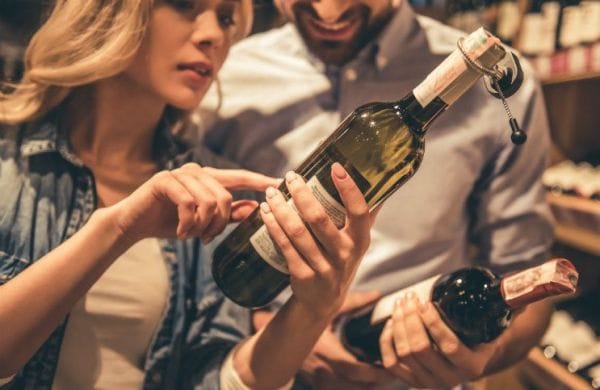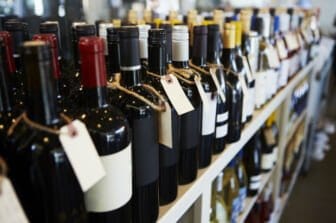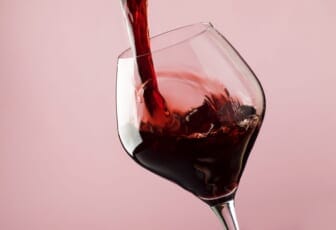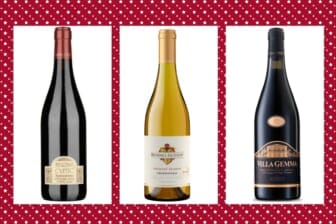
The way most of us think about wine isn’t the way that Holly Berrigan thinks about wine. Formerly an employee at a consulting firm, she now works full-time as a natural wine importer and environmental educator.
To learn about how she got into the business, what natural wine is and why we should care, and how she seamlessly blends her passions for wine and the environment, we had a little chat.
Give us the full rundown on how you got your start in the wine business!
Holly: My entry into wine wasn’t the typical story! It actually started as a hobby taking Wine Spirit and Education Trust (WSET) courses while working at a consulting firm. As I got more into the tasting groups and further along in my certifications, I decided to start a company as a side project to source wines from Europe.
After meeting my partner, we found our focus in natural wine and eCommerce and launched a wine club in December 2018. In 2020, we officially launched MYSA Natural Wine, a uniquely curated natural wine club and e-commerce platform with an emphasis on affordability, accessibility, and exploration.
What, exactly, is natural wine? Aren’t they all natural?
Holly: The easiest description [of a natural wine] is “nothing added, nothing is taken away.” To me, that means that they use native yeasts and spontaneous fermentation versus killing those yeasts and inoculating the wines. Also, they don’t add in any of the over 60 additives approved for adding to wines—things like colorants, acidifiers, and other ingredients you wouldn’t like to know are in there!
If you’re someone who cares about eating organic food and knowing how it was produced, it’s a natural progression to think about your wine consumption, in the same way, wanting to know what went into it.
What does the existing wine industry’s ecological footprint look like?
Holly: The quick answer can be broken into a few categories. The first aspect is production. Water is really the biggest problem both in grape growing and in the winery. Most conventional vineyards use irrigation, which requires massive amounts of water and makes the vines lazy and less interesting, as they don’t have to dig their roots deep to find other water sources. Then, in the winery, around four gallons of water are used to produce one gallon of wine. A lot of that usage is unavoidable, as most of that water is used for keeping the equipment and winery clean, which is important for the wine to stay sound.
Beyond the water issues, there are also lots of sprays used on the vines in conventional vineyards—some that are the equivalent to Round-Up or were repurposed chemicals that were going to be used for weapons during WW2. These seep into the soil and surrounding climate which is bad for the local ecosystems. Finally, wine is heavy and typically has to be transported across oceans which creates pollution while in transport.
What are some ways to reduce that footprint?
Holly: The easiest fixes are for more farms to work at a minimum sustainably and to plant grapes that match their climate to reduce the need for irrigation and chemical sprays. The supply chain is a hard one, but ideally, they will reduce the use of fossil fuels for shipping and trucking.
Tell me about your partnerships with 1% for the Planet and the Carbon Fund.
Holly: After painting that bleak picture about the ecological impact, it’s probably pretty clear why we wanted to do what we could to offset our impact! We donate 1% of our revenue (not just profit) to causes via 1% for the Planet including the Carbon Fund which allows us to offset the carbon footprint of the wines we sell from the vineyard to the customers’ door. It’s not a perfect solution because the carbon emissions are still happening but is definitely a start.
How can someone know whether they’re drinking natural wine or not?
Holly: This is tough, as there isn’t a lot of information on the bottle about what is in it. My favorite way is to look at the importer. Wine always has to have the information of who imported it on the back, and if you are familiar with the ones that work in natural wine you can be sure that that wine will meet their standards and is natural! Some to look out for are Zev Rovine, Jenny & Francois, Super Glou, and many others!
You’ve managed to seamlessly blend your passions for wine and the environment. Any advice for others who want to do that, too?
Holly: First, I think it’s important to note that it’s OK if you don’t know what your passion is yet! I wasn’t sure and realized by looking through my bookshelf that I had an interest in wine that led to it being my passion. From there, I thought about how I could combine my skills—speaking three romance languages and having a background in sales and marketing—with that passion to eventually turn it into a job.
I’d say start out small and don’t feel like you need to go all in at once. I eased into it and took two years to go from starting my wine courses to selling my first bottle of wine. Everything that looks like an overnight success happened because someone started small and created a snowball effect that’s finally pushed over the other side of the mountain, so don’t give up!



